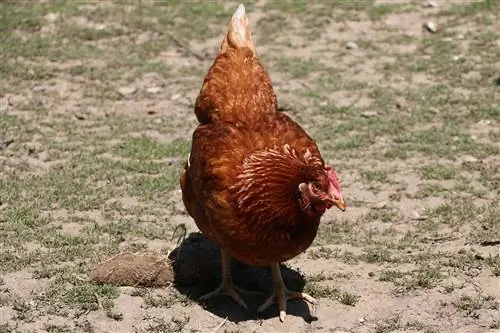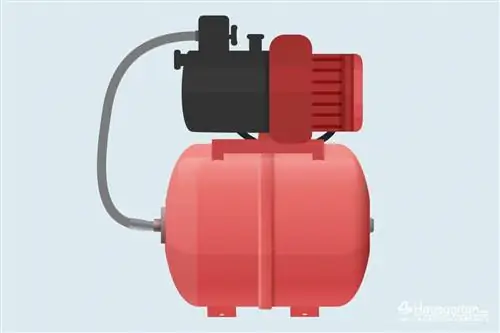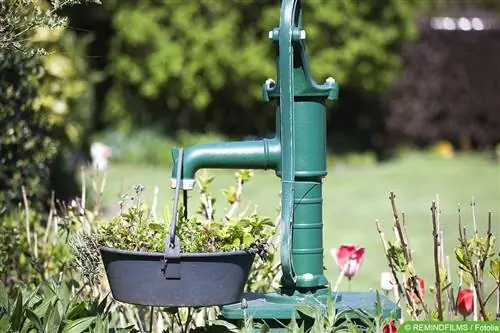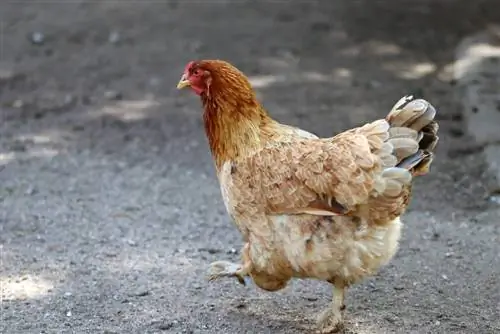- Author admin caroline@plants-knowledge.com.
- Public 2023-12-17 03:39.
- Last modified 2025-01-24 12:45.
If the chicken is suddenly breathing heavily, this can have various causes. As a rule, however, it is a chicken cold, which, like us humans, is an infection of the upper respiratory tract in chickens.
Causes of heavy breathing
There are various reasons why a chicken has difficulty breathing, then it could also be a serious illness, which should be ruled out first. An upper respiratory tract infection can also occur in conjunction with various other chicken diseases:
- Chicken flu
- Bird flu
- Newcastle disease
- massive infestation with worms
- infectious laryngotracheitis
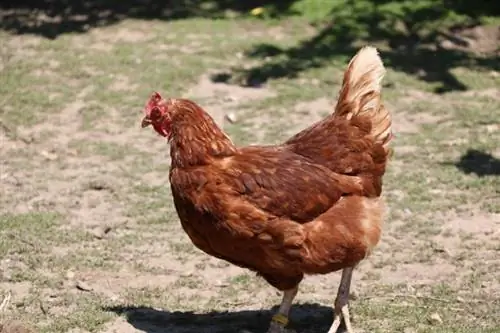
But causes that are not illness-related can also make it appear as if the animal is breathing heavily. This includes panting due to extreme heat, because like dogs, chickens also pant when they are hot because they have no sweat glands.
Tip:
If a chicken is panting, it is advisable to put it in a cool place and provide enough water. Chickens open their beaks to cool down, which may be seen as heavy breathing.
Cause of chicken cold
Like us humans, chickens can also get an upper respiratory tract infection. However, the chicken cold can have various causes:
- Adenoviruses and rhinoviruses have infected the mucous membranes
- humid and windy weather
- Chicken coop is not draft-free
- Viruses spread better in humidity
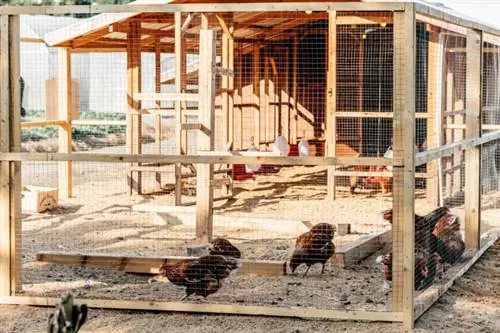
If heavy breathing is detected in bad weather conditions, it is usually chicken cold. This can then be treated well.
Symptoms of cold
Chicken cold is not always easy to recognize. Because the chickens show a variety of symptoms. However, heavy breathing is the first indication that the chicken is having trouble breathing because its nose is blocked. There are other symptoms that can occur in conjunction with which chicken cold can be recognized:
- Nasal discharge
- Sneeze
- watery eyes
- audible, often rattling breathing noise
- can sound like dangerous breathing noise
- Beak opens wide
- intermittent choking
- frequent head shaking
Note:
Always consult a veterinarian if you are unsure about diagnosing symptoms. This also applies if the chicken is not feeling better after several days.
Measures against chicken cold
If you have ruled out other diseases and it is a virus infection that caused the chicken cold, then you must take further measures immediately. First of all, it is important that you separate the sick chicken from the others so that the viruses do not spread further. Further measures must then be taken:
- clean out the entire stable thoroughly
- disinfect
- sprinkle thickly
- Add special vitamins for chickens from specialist retailers into the drinking water
- don't let sick chicken out in muddy, wet and cold weather
- Heat lamp for sick chicken
- avoid further possible drafts
- high-quality feeding to strengthen the immune system
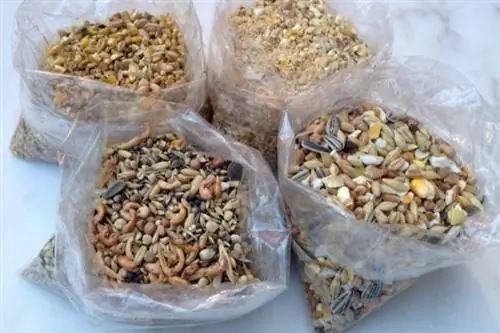
If the general well-being of the chicken is strengthened, then the chicken organism can cope with the pathogens quite well and the chicken will quickly recover. The chickens also cope better with bird mites if they eat a balanced diet, but action should be taken quickly in the event of this infestation.
Note:
If a chicken is sick, there is unfortunately a high probability that the other chickens have already been infected. Therefore, observing the animals in the next few days is particularly important and recommended. The incubation period is between a few hours and several days.
Home remedies
In contrast to the use of various chemically manufactured medical products, there are tried and tested home remedies that have also proven effective for chicken colds:
- Feeding with respiratory herbs
- Inhalation
- Chamomile decoction is suitable for this
- Set up a hot bowl in a small room
- Put chicken in the room
- Remove the bowl after an hour
- Application of essential oils
- feed grated onions
- Enrich drinking water with multivitamin mixture
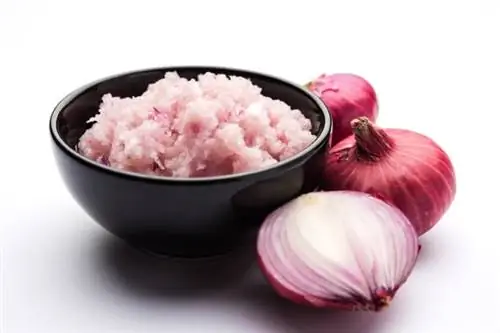
Tip:
When using essential oils for inhalation, Japanese healing oil is useful. Two drops of this are added to a bowl of hot water, which is also placed in the same small room where the sick chicken is for an hour.
Frequently asked questions
Is chicken cold always that easy to recognize?
No, unfortunately that is not the case. Because some animals hardly show any symptoms and actually behave normally. However, if a chicken that is actually behaving normally makes “weird” noises from time to time, such as a short squeak while eating, then this could also be a case of chicken cold.
Can I prevent chicken cold?
Chickens need vitamins to strengthen their immune system. It is therefore helpful to administer these vitamins directly with drinking water. The stable should also be checked for drafts. The chickens can also stay in the warm coop in bad weather, i.e. damp, cold weather.
Can I give antibiotics to the sick chicken?
Antibiotics should be avoided in this case, because if the cold trigger is a virus, then the use of antibiotics that are only used against bacteria will not work. Therefore, such an administration should be carried out after consultation with the veterinarian, who may suspect that bacteria have settled on the already damaged mucous membrane.
Is there a special food mixture to increase the immune system?
If the chicken has a cold, it is recommended to offer a different food for three days. To do this, garlic, grated carrots, coconut flakes and yeast flakes are mixed with a little olive oil. The normal chicken feed is reduced during this time so that part of the feed requirements are covered by the mixture. After about two days, the chicken should feel relief.
How do I know if my chickens have bird flu?
If it is not a simple cold caused by viruses and bad weather, but rather the dreaded bird flu, then it is easy to find out. Chickens suffering from the flu show severe symptoms. The feathers are dull and the chickens suffer from weakness, usually due to a high fever. Edema also forms in various parts of the body, such as the head, legs or neck. In addition, there is diarrhea and possible blue discoloration of the skin.

